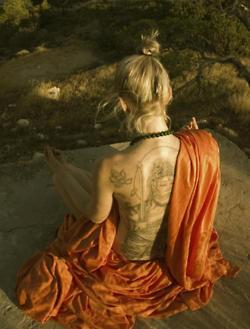
This is a beginning of series of posts I’ll be adding, related to spirituality, religion, life and death. It is for a broader understanding, a deeper connection to who we are, and how we all are connected – the good and bad, ugly and beautiful. My exploration of C.G. Jung continues, and from his studies of World Religion, I have formed my own opinions, however my opinions/insights are intuitive, confirmed through synchronicity of external happenings and my own research. Enjoy, as this blog evolves, so do I, deeper connection to my human existence, and a deeper understanding to others. Stay tuned. ❤
Rituals. Rituals have been conducted since the dawn of human existence, for even cavemen may have had a way to celebrate and honor our Mother Earth, Mother Moon, Father Sun, and sister/brother planets. Rituals are more than witchcraft, but important for self-healing and growth. Whether the word ‘ritual’ is used in a language or religion, we all honor in some form our higher self, Source, our God of our mind’s understanding. Religion is universal, not one is more powerful or pure than the other, for they are all connected, to the sense and finding of a ‘light’, higher consciousness, our spirit, the image beyond the veil of illusionary existence. The truth, that we are all one, connected, to a universal consciousness of energy and light, beyond physical rationalism, intellect, and biological understanding; beyond genetics, race, and gender; beyond sexuality; beyond this earth, to the broader universe, within the darkness past the fog of our external reality. Beyond our physical eyes there is an inner ancient knowledge, our soul memory. That is the truth we wish to seek, to which is with us all along.
Featured Image found at: The Spirit that Moves me Facebook page
“If for a moment we put away all European rationalism and transport ourselves into the clear mountain air of that solitary plateau, which drops off on one side into the broad continental prairies and on the other into the Pacific Ocean; if we also set aside our intimate knowledge of the world and exchange it for a horizon that seems immeasurable, and an ignorance of what lies beyond it, we will begin to achieve an inner comprehension of the Pueblo Indian’s point of view. “All life comes from the mountain” is immediately convincing to him, and he is equally certain that he lives upon the roof of an immeasurable world, closest to God. He above all others has the Divinity’s ear, and his ritual act will reach the distant sun soonest of all. The holiness of mountains, the revelation of Yahweh upon Sinai, the inspiration that Nietzsche was vouchsafed in the Engadine – all speak the same language. The idea, absurd to us, that a ritual act can magically affect the sun is, upon closer examination, no less irrational but far more familiar to us than might at first be assumed. Our Christian religion – like each other, incidentally – is permeated by the idea that special acts or a special kind of action can influence God – for example, through certain rites or by prayer, or by a morality pleasing to the Divinity.”
The ritual acts of man are an answer and reaction to the action of God upon man; and perhaps they are not only that, but are also intend to be “activating,” reform of magic coercion. That man feels capable of formulating valid replies to the overpowering influence of God, and that he can render back something which is essential even to God, induces pride, for it raises the human individual to the dignity of a metaphysical factor. “God and us” – even if it is only an unconscious sous-entendu – this equation no doubt underlies that enviable serenity of the Pueblo Indian. Such a man is in the fullest sense of the word in his proper place.”
“The soul from its primordial beginnings there has been a desire for light and an irrepressible urge to rise out of the primal darkness. When the great night comes, everything takes on a note of deep dejection, and every soul is seized by an inexpressible longing for light. That is the pent-up feeling that can be detected in the eyes of primitives, and also in the eyes of animals. There is a sadness bound up with the soul of the animal or is a poignant message which speaks to us out of that still unconscious existence. That sadness also reflects the mood of Africa, the experience of its solitudes. It is a maternal mystery, this primordial darkness. That is why the sun’s birth in the morning strikes the natives as so overwhelmingly meaningful. The moment in which light comes is God. That moment brings redemption, release. To say that the sun is God is to blur and forget the archetypal experience of that moment. “We are glad that the night when the spirits are abroad is over now,” the natives will say – but that is already a rationalization. In reality a darkness altogether different from natural night broods over the land. It is the psychic primal night which is the same today as it has been for countless millions of years. The longing for light is the longing for consciousness.”
Pingback: Year 6 | Inside A Soul